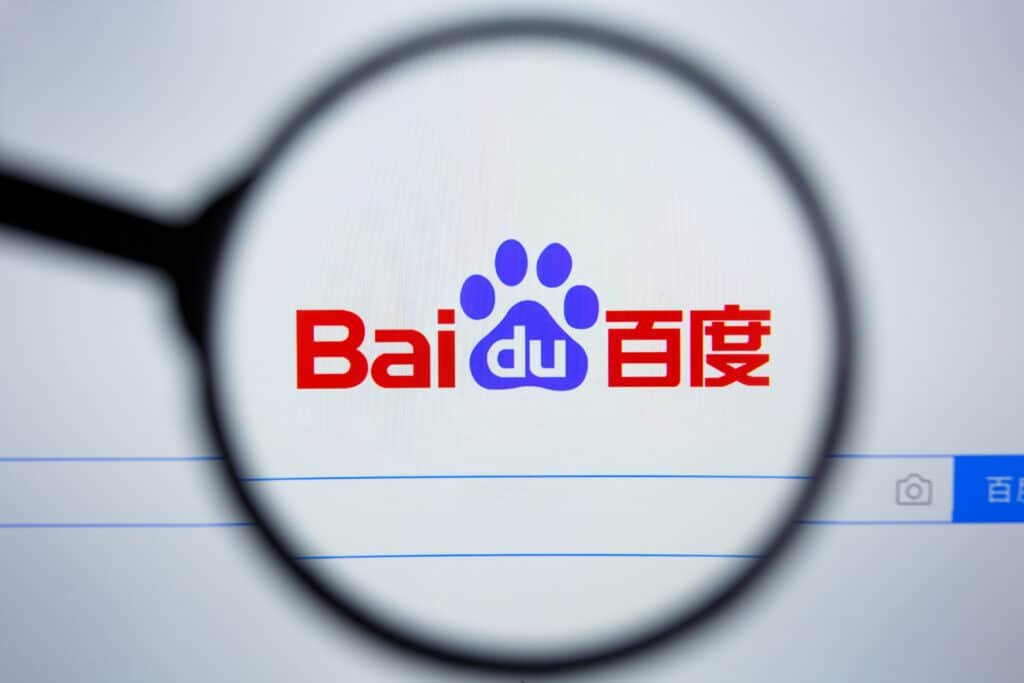Website Translation is the Key to Unlocking China for Your Business
-1024x645.jpg)
China’s economy is a freight train – not only is it big, but it is moving fast and with a lot of force.
Excitement about China’s economy has been around for many years. Western companies, big and small, question whether they should market to Chinese consumers and businesses. How significant is the opportunity? Is it worth the investment? How should we get started? Not only are the opportunities enormous, getting established in China is easier than you think. Translating your website is the best way to start.
Read to the end to learn a trick to see if your website needs Chinese translation.
Understanding the Chinese Market Economy
Getting to know an economy as large and complicated as China can be intimidating. Everyone understands that the Chinese economy is immense, but it is hard to appreciate how enormous it really is. China’s market is filled with opportunities, as long as you are willing to take advantage of it.
If you are worried that you “missed the boat,” this section should show that now is still a great time to enter the Chinese market.
China’s Is an Economic Dynamo
It is difficult to explain how massive China’s economy is. Not only are there 1.4 billion citizens, but some of the most populated cities of the world are also Chinese, with 3 of the top-10 largest cities being in China. While India is catching up, China remains the most populous country on earth, especially the well-educated worker population.

Total population isn’t the only metric of influence. China’s gross domestic product (GDP) was over $14 trillion in 2019, making it the second-largest in the world. China’s GDP per capita was about $10,262, which is lower than countries like the United States ($65,298) but is much higher than India ($2,100). Most families have some disposable income, making them great potential customers.
Understanding China’s middle class is essential to understanding China’s economy. In 2000, it was estimated that 3.1% of China’s population was part of the middle class. By 2018, this grew to over 50%! That is one of the most radical economic transformations seen in human history. Rapid economic growth means the buying power of the Chinese public has exploded.
China’s Strategic Importance

While China’s growth has slowed in recent years, it is still adding millions to the middle class each year. It is predicted that China will overtake the United States as the largest economy in the world by 2032. With that kind of growth, companies still have plenty of opportunities to expand to the country.
In fact, businesses with a foothold in China will be strategically strong relative to competitors. Companies established in China will grow and become more influential as China’s economy grows. Even if you are a small business owner – do you want your competition to have all the Chinese market to themselves? China is a key strategic battleground both today and tomorrow, and companies without a China strategy are not planning for the long term.
China’s Workforce and Business Community
China is not just a market to sell your products or services. China is the largest manufacturing hub in the world, accounting for 28.7% of manufacturing in 2019. Companies that outsource portions of their supply chain to China can see huge savings. The manufacturing industry also buys a lot of products and services. This means business-to-business companies particularly need a learn how to sell to China.
China is also a great place to recruit talent. China has the largest post-secondary system in the world with almost 3,000 institutes of higher education and 37 million students. Computer-related fields are popular in China. Given the growth of remote work, it may be possible to hire people working from China to fill roles in your company.
Benefits of Translating Your Website into Chinese
So, how should you start establishing your business in China? Expanding to a whole new country must be complicated and expensive, right? It is easier than you think. Translating your website is the first step in becoming established in China. Your website is the best place to attract Chinese customers, but your English-language website won’t do the trick.
Internet Usage in China
China has a relatively high rate of internet penetration. According to a 2019 survey, over 54% of the population had access to the internet. This means there are more Chinese people on the internet than any other population. While 54% internet penetration may sound low, the United States and Russia only have 76% penetration, and Italy has only 61%. As with the economy, internet penetration is growing quickly. Internet availability grew over 10% from 2012 to 2017, meaning it is likely over 60% today.
-1024x576.jpg)
Those who have access to the internet in China have similar habits to North Americans and Europeans. A survey taken in December 2020 found that Chinese internet users spend about 26 hours on the internet per week. China also loves to shop online – the country spent almost $2 trillion on e-commerce in 2019, the most of any country. If you want to reach Chinese customers, the internet is the best way to do it.
Does Your Website Need Chinese Language Translation?
Although Chinese internet habits are like North Americans’, there is one key difference: search engines. Google is the most popular search engine in the English-speaking world, but the share of search traffic in China is only 2.3%. What service is most popular? Baidu, with almost 70% of search volume.

For those not familiar with Baidu, it is a China-based search engine. Founded in 2000, the company has a similar business model to Google – search paired with ads. The functionality and results look a lot like what you would see from Google as well.
Of course, Baidu isn’t just a Chinese version of Google. There are several subtle differences in the way they display results and how they rank pages. Discussing Baidu’s search engine optimization (SEO) is beside the point for this article, but here is one difference that is essential to understand: Baidu doesn’t index most non-Chinese websites.
Most English-only websites cannot be found through Baidu. Search is based on text, and Baidu seems to only track Chinese text when indexing web pages. Some well-known English websites show up on Baidu, but these usually have a Chinese version. Almost all non-Chinese websites are entirely invisible to Baidu.
Check for yourself. Use baidu.com to search for your brand. The page is in Chinese, but it works like Google. Enter your brand name using English lettering and press enter. Does your website show up? If not, that means most Chinese customers can’t find you, and you need Chinese website translation services.
Even if Chinese people could find your English website, they wouldn’t be able to read it.
Can Most Chinese People Read English Websites?
Westerners often overestimate the levels of English speaking in China. Many Chinese immigrants and students who live in the United States, Canada, and parts of Europe speak excellent English. This gives the impression that most Chinese people are fluent. This is a myth.
Less than 1% of China is fluent in English. Chinese schools teach basic English, but that isn’t enough experience to read your website. The only way to communicate to the majority of Chinese people is to translate your website.
Translating into Chinese is Fast and Easy… with the Right Partner
Translating a website has many benefits. Beyond findability on search engines, you can create marketing materials targeting your audience in a specific country, and develop culturally informed messages. Professional translation also helps you adhere to legal and regulatory requirements. To learn more about the benefits of professional translation services for businesses see our blog post on the 5 Reasons Why Your Business Needs Professional Translation Services.
Getting your website translated into Chinese is easier than you think. Modern business translation services pair automated translation software with qualified expert translators. This helps the translators to work quickly while maintaining quality. Editors and proofreaders will then review the text to ensure it is clear, natural, and grammatically accurate. This team can also work with your web developers to meet any specific needs of your site. With an experienced agency, translating a website can take as little as a few days.
DingTech is a professional translation and localization service with over 13 years of experience. We have worked with thousands of clients on website translation projects. This including many small-and-medium-sized global businesses, corporations, and organizations.
Are you interested in translating your website into Chinese? Do you want to learn more about our services? Contact us for a free consultation.
Was this article useful to you?
5 / 5. 1
很抱歉,这篇文章对您没有用!
让我们改善这篇文章!
告诉我们我们如何改善这篇文章?

-1.jpg)







